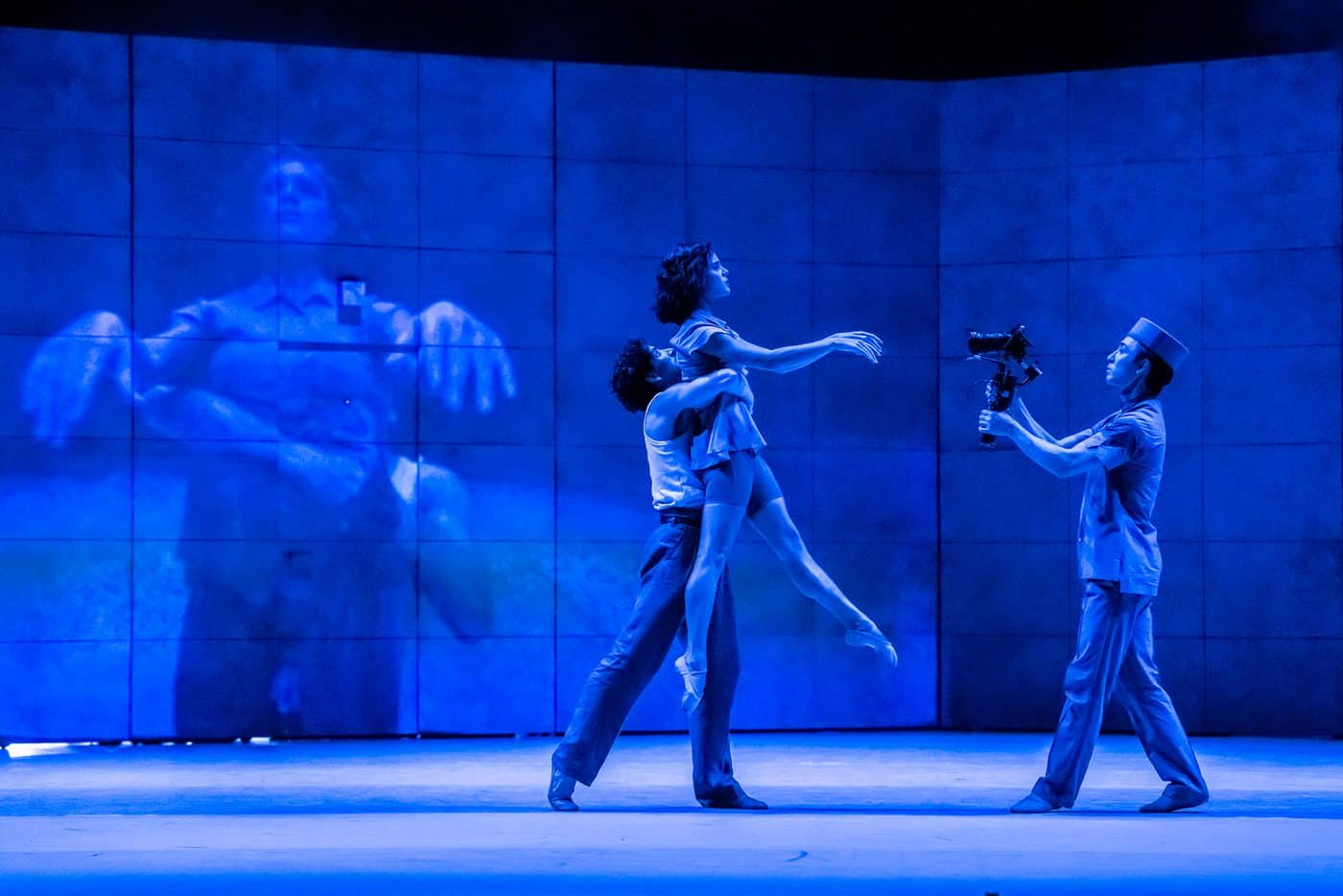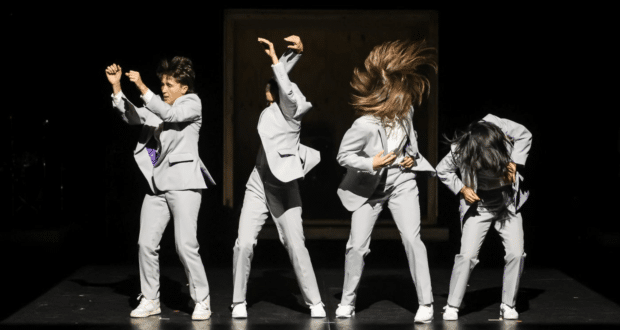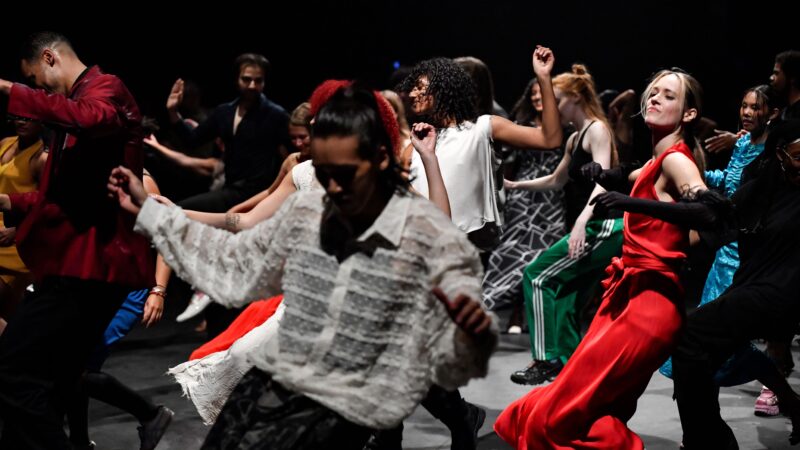Birmingham Royal Ballet, Sadlers Wells
If Carlos Acosta guarantees us Londoners an “extraordinary” triple bill, rushing down from his midland powerhouse, we sit up and listen. The mere whisper of this most hallowed director soars ticket sales and promises bums on seats. Add name-dropping of the likes of Jiří Kylián, Benjamin Britten, Uwe Scholz, and Ludwig van Beethoven plus the ballet Sinfonia and it would seem like a done deal. Yet dance (dramatic arm gesture) is rarely so simple.
Slap bang in the centre of the three is a truly extraordinary piece. Hotel is crafted by creative duo Jessica Wright and Morgann Runacre-Temple (or Jess&Morgs as they are lovingly known). J&M’s (the nicknames keep getting shorted) mission is clear, shake up and push ballet (screaming if needs be) into the modern world. Bringing technology and especially film/live recording into the scene, which is lagging desultorily behind its cousin’s theatre and opera. They do this in stunning style.
Sami Fendall’s (winner of The Linbury Prize for Stage Design) set is a drab hotel lobby, but a pandora’s box of treasure awaits. In flocks bell boys, and a sinister manager and assistant manager. Through various technological cleverness, doors fly open, and guests are then live filmed beyond in their rooms and projected onto the two large walls of the lobby. Dancers waltz with their own projected shadows and are pursued by bellboys wielding cameras providing close-ups rarely seen under Sadler’s arching ceiling.
What this brings to the show is lightness, along with a flipping of perspective. Tzu-Chao Chou and Beatrice Parma as our sinful servants shine brightly within the absurdist world. Leaning conspiratorially into the cameras, eyebrows lifted, cruel smiles stretching menacingly across their faces. A scene where the guests glide on stage through billowing dry ice, on wheeled beds as the cameraman is sat on the other side of the bed filming them, just breathtaking. The dissonance between watching the action from a safe distance and making eye contact with a projected face the size of a person is a real trip. Add in campiness, Hitchcockian flare, and some unexplained yet glorious ostrich costumes (an extended hand and a large trench coat) and you get a dreamlike droplet of perfection. Funny, frantic, and fascinating.
The rest of the evening although filled with glittering names of success feels rather leaden in comparison. Both pieces are more classical/neo-classical in their style and certainly flatter in their presentation. A little like asking a child to choose between a painting of a clown or the living breathing jester. Ladies and gentlemen, I am that child. Wowed by the new to the detriment of the old. Guilty as charged.
First, we have Forgotten Land with choreography by the legendary Czech talent Jiří Kylián. Benjamin Britten’s Sinfonia da requiem Op.20 jazzily bashes and crashes away as dancers in trailing primary colour gowns and bellowing black trousers swing in and out of embraces. John Macfarlane’s backdrop looks like a seascape of J. M. W. Turner’s all-mottled orange pushing through storm clouds. The movement has a wistful choppiness to it, as the figures start and end gazing upstage, walking into the misty backdrop. Pretty? Yes. Enjoyable? Yes. Riveting? Sadly no.
Lastly, we have the much-lauded The Seventh Symphony by Uwe Scholz to Beethoven’s Symphony No.7 in A major Op.92. Premiering in 1991 at a difficult period in the choreographer’s career it has only recently become part of the Birmingham Royal Ballet’s repertoire. A small army of dancers, dressed in Scholz’s Morris Louis-inspired costumes dive into the air. Looking like a cross between thunderbirds and synchronised swimmers this Star Trek ballet is an odd visual experience. The choreography is expert, demanding in the extreme, lyrical, and elastic. The girls are thrown around by the boys, then land delicate and poised like demented gymnasts elevated onto Ponte.
Odd painted rainbow lines on either side of the stage match the stripes on the almost pornographically thin leotards, bringing to mind the opening ceremony of the 2008 Beijing Olympics. The lack of humour, with the visual overtones and comically bouncing derrières, renders the whole affair vaguely hilarious. Although unlike Hotel just before it seems impossible to let out a well-timed guffaw.
In this instant past and present don’t blend as well as Carlos promises in the program. Forgotten Land’s 1981 premiere and The Seventh Symphony’s 1991 feel millennia away from Hotel’s birth last month. As my neighbour mentions in the interval, newer doesn’t necessarily mean better. Although in this particular triptych the Ingénue of the group is the only one that haunts my dreams and wakes me up with a smile.
Don’t miss the next time the BRB grace our fair city, click here!



